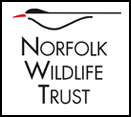The press release issued by Norfolk Wildlife Trust on 4 July 2022.
Following information published by Norfolk County Council ahead of today’s Cabinet meeting, a group of environmental organisations continue to raise grave concerns about the ecological impact of the proposed Norwich Western Link.
The Council has shared data from new ecological surveys on the location of bat roosts and feeding areas within an ancient woodland found on the proposed route, and published a new route map that they believe will avoid significant impacts to the bats.
Independent bat expert, Dr Charlotte Packman, has been carrying out in-depth research into the presence of barbastelle bats on the proposed route for the past four years.
Dr Charlotte Packman said: “Norfolk County Council’s reports only show a very limited snapshot of what is known about the nationally important barbastelle super-colony that is located here – with colony counts, home ranges, foraging areas and roosts substantially underrepresented in their reports.
“For example, at one colony the peak count recorded by the Council’s surveys is reported as 16 barbastelles, where we have recorded 105. Our data has been verified by UEA, making this currently the largest known barbastelle roost in the country.
“This is very concerning as the true scale and importance of the barbastelle super-colony has not been presented in the Council’s reports and therefore the proposed impact of the road on barbastelles will be significantly underestimated. This is an exceptional population of a very rare species that is considered to be something of a ‘Norfolk specialty’ – we have an important obligation to ensure that it is properly protected before it is too late.”
Mike Jones, NWT Conservation Officer, said: “Norfolk County Council’s proposed route amendment to avoid a handful of ancient and veteran trees does nothing to address the concerns for wildlife we have been raising for years. The bats need to feed and roost across areas of more than six kilometres, making a home in the flaking bark of trees found deep in the woodland and feeding from the far corners of this unique natural landscape.
“Barbastelle bats are in serious decline globally and here in Norfolk we are the guardians of one of Europe’s most significant maternity colonies. The survival of these bats relies on us considering the long-term impacts to the species on a landscape scale.
“As creatures of habit, imagine the shock they will experience when a 3–4-mile dual carriageway appears with no notice, running through the heart of their roosting and foraging grounds. One of the most devastating impacts will be separating the bats from the fields and marshes where they feed. The proposed road will inevitably result in the deaths of many bats and risks the local extinction of a globally threatened and, let’s not forget, legally protected species.
“In addition to other significant wildlife impacts, the growing knowledge of the bats’ existence on the route is a game-changer and, despite the resources already invested by Norfolk County Council in this plan, must put a stop to the Norwich Western Link.”
In spring 2021, Norfolk Wildlife Trust requested that Natural England consider the area of woodland, including ancient woodland, for designation as a Site of Special Scientific Interest (SSSI) and Special Area of Conservation (SAC) in recognition of the importance of the area for wildlife.
Norfolk Wildlife Trust is part of a collective of environmental organisations including Stop the Wensum Link, CPRE, Friends of the Earth, the Woodland Trust, Norfolk Rivers Trust and Norfolk and Norwich Naturalists’ Society, all of whom oppose the development on the grounds of the unacceptable impact it will have on wildlife and the wider natural landscape.
